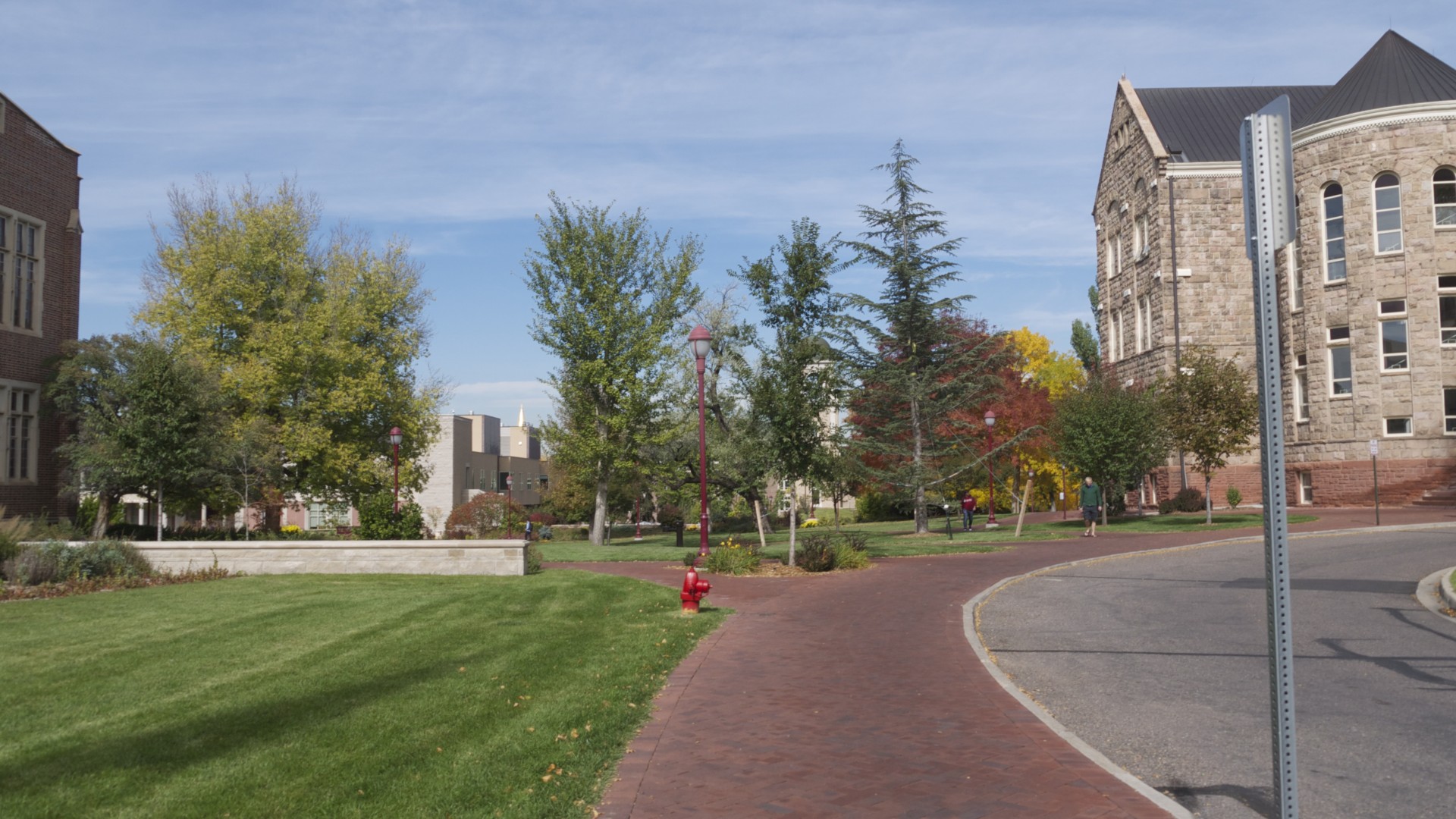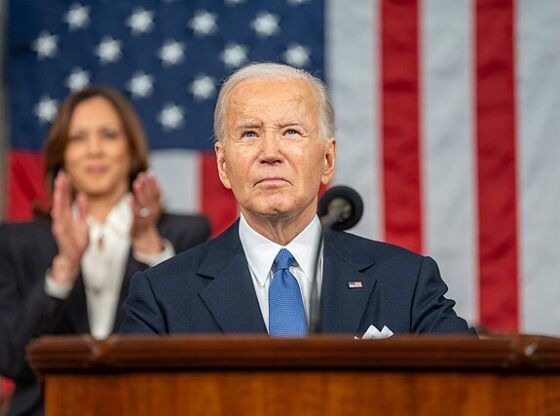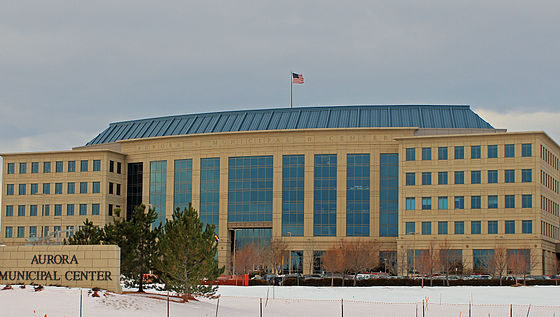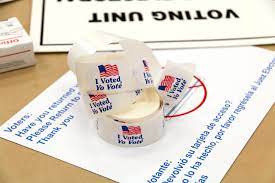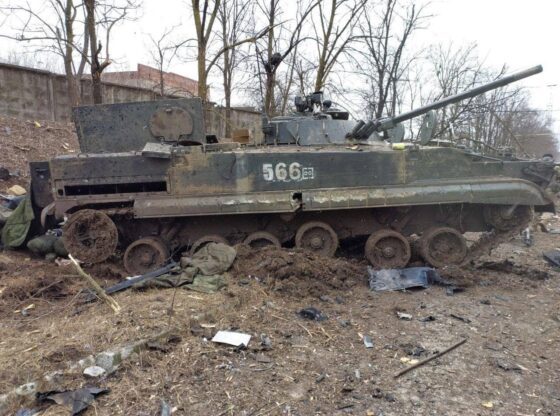Just when the dust from the 2016 election was starting to maybe die down, DU threw its hat in the ring with the annual USG elections starting April 23.
On the evening of Wednesday, April 26, current USG president and vice president Tess Greenwald and Chandler Carlson, as well as the DU Debate Union hosted the current presidential and vice presidential candidates for a debate in Maglione Hall. This year’s tickets feature Morgan Smith and Darylann Aragon, Ben Murray and Julia Arnett and Drew Harrilchak and Brian Norris. (See our Facebook for archived Live videos of the event).
The debate was moderated by DU Debate Union president Jordan Mohler and had the following format: opening statements, four vetted questions asked by the moderator with two minutes to respond per ticket with one 15 second question at the end followed by two student-submitted questions and closing statements. Mohler promised to push the candidates for specifics and stronger answers, which she followed through on throughout the debate.
The questions ranged from how the candidates would improve inclusive excellence on campus, to identify working and dysfunctional programs already existing with USG, the role of DU when it comes to free speech and what the most compelling program or experience that each ticket offered that differentiates them from the other tickets.
Speaking order was chosen randomly, with Smith-Aragon starting off the debate. The importance of including diversity organizations on campus was something the duo frequently brought up throughout the night, including laying out the mechanisms they would use in order to bring more people to the table, as well as stating their own involvement with various organizations on campus.
“We don’t go to the most diverse university ethnically, but when it comes down to it, we come from different life experiences, we come from places that are very different, and by delving into those ideas and bringing together different leaders of organizations . . . and really get down the nitty gritty of what we are as a student body . . . that’s where Morgan and I stand,” Aragon said.
“Unity is not uniformity and we need to be able to celebrate that diversity throughout campus,” Smith said, adding onto Aragon’s statements.
Murray-Arnett discussed their involvement with DU Muslim Student Alliance and working with Sodexo to create more awareness and accessibility for students celebrating Ramadan in the dining halls during meetings with DUMSA. However, they were pressed on this later in the debate, admitting that they had only been to one DUMSA meeting. Directly after the debate, DUMSA issued a statement saying that “”that these meetings did not take place, nor did these candidates contribute to the development of this policy” and “have asked that DUMSA be removed from the Murray-Arnette campaign platform.”
Town halls, open forums and garnering more student involvement was part of the answer to almost every question posed by Mohler by each ticket, but Harrilchak-Norris has taken a unique approach by running on the “you” platform, which is entirely crowdsourced by ideas given to them by DU students. As part of that, when it came to inclusive excellence, Harrilchak-Norris focused on changing the culture around student involvement in USG as a way to bring in more diverse policies to USG.
“The more we can communicate with students, the more we will be able to implement policies that we feel, that the students feel will be more effective,” Norris said.
“Because we are a relatively small campus, it allows us the opportunity to have those forums that other campuses can’t have,” added Harrilchak.
The second question focused on what each campaign thought USG was currently doing right and what needed to be worked on. Murray-Arnett stated their support for the Into the Light campaign that USG recently sponsored and highlighted the free speech wall as something that needs to be fixed.
“We think that there are better ways to implement free speech throughout the DU community,” Arnett said. “We encourage and promote free speech, but the wall has seemed to create more problems than solutions. Holding town halls and public forums would be how we go about encouraging free speech on campus.”
Harrilchak-Norris focused on what they saw as USG’s failure to involvement many students and the need to make people more aware of what’s going on, building on their previous answers. Smith-Aragon said that the committee structure was one of USG’s strengths, but that they need to be more sustainable.
Murray and Arnett had already touched briefly on free speech issues on campus, but the third question delved into the role of campus in free speech.
“I think the university has a large role in free speech in terms of allowing it to happen in a way that doesn’t cross the line,” Norris said. “We believe that free speech in a polite, respectful manner can do a lot for not just the university, but the country.”
The importance of discourse was continued by Smith-Aragon, who stated the importance of how events are perceived and the need for USG sponsored events that wouldn’t carry the perception of aggression that other sponsors might in order to bring all voices to the table.
“The campus and the student body is entitled to their opinions and how they want to express those opinions,” Murray said. “We want to open up more platforms for students to be able to express themselves.”
Mohler’s final question before shifting to audience questions asked the candidates to address the most “compelling new program, experience, level, legislative idea or skill set” that each ticket could offer that differs from other candidates. Smith and Aragon spoke about creating a student advocacy team on campus in partnership with the law school that could students could use for a various issues from conduct issues to navigating Title IX, while Arnett and Murray stressed their previous experience in USG. Harrilchak and Norris again spoke about their ability to crowdsource ideas and create a creative space.
Audience questions were gathered throughout the debate and chosen by Mohler. The two main questions—”how have you already begun to create the campus you want?” and “What would you do about DU’s current mascot situation?”—were addressed to all three tickets.
In response to the first question, all tickets talked about the outreach they had done in building their platform, but Smith and Aragon added their past involvement with organizations on campus. Similarly, all of the candidates agreed that crowdfunding a new mascot simply had not worked.
“We really want to create a mascot that we can all stand behind, that really represents who are as a student body,” Arnett said. “That is going to be one of the first things that we work on.”
Smith and Aragon offered the option of a dedicated committee to coming up with a new mascot, as well as recognizing the alumni pressure to reinstate Boone.
“At this point, the fact that we are the pioneers should be changed to the fact that we pioneer. We are students are more than just a stereotype of what it means to be a pioneer. If we pioneer new initiatives, that umbrella of coming together is much better,” Aragon said.
Harrilchak tossed out a few alternatives for a mascot, including an armadillo, while Norris pivoted away to what he sees as the bigger picture.
“We’re paying attention more to a greater DU. Obviously sports are a big part of DU . . . but a new mascot won’t bring back school spirit. What will bring back school spirit is students who believe in the university itself and that’s what we want to do,” Norris said.
The debate wrapped up with one minute closing statements from each campaign. Each campaign expressed their thanks for the students who came out to the debate and reiterated how much each would like to your student body president and vice president.
“We were happily surprised to see so many come out who are passionate about USG,” Norris said. “If we could fit the entire university in this room that’s what we want to do. We want to have this debate next year in the gym . . . somewhere we can have everyone involved.”
“We want to be those student leaders that we feel like you can come up to and talk to,” Murray said.
“We are so excited for the possibility to represent you on a level that would give us the power to start the initiatives that you want us to start,” Aragon said.
Voting closes Friday, April 28 is available through an individual link sent to all students. Any student who did not receive a link should contact carl.johnson@du.edu. Each campaign’s platforms are available on their respective websites and full video of the debate, as well as follow up questions, are available on the Clarion’s Facebook page.

